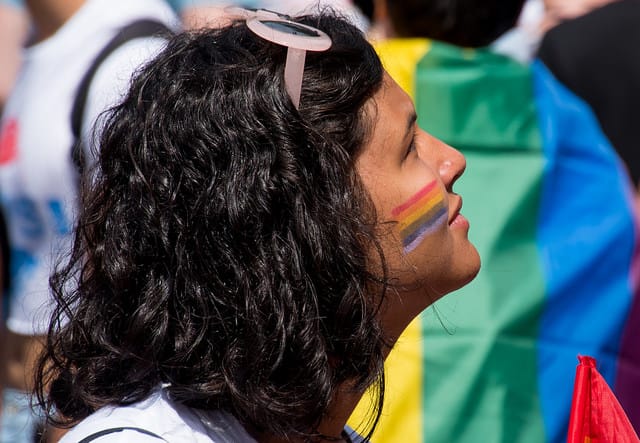Love Wins in India

On the 6th of September 2018, section 377 (which criminalises consensual sexual activity between members of the same sex) of the Indian Penal Code was declared to be unconstitutional, by justice Indu Malhotra. The section was first drafted in 1830 by Thomas Macaulay, who was Secretary to the board of Control during the British Raj. And it was due his work that homosexual sex was criminalised. This was part of the Empires larger project to eradicate ‘carnal acts against the order of nature’.
Prominent examples of persecution under this section include a judge in 1934 describing two men who had engaged in consensual sexual activity as ‘despicable specimens of humanity.’ And another incident in North India, in 1884, where during the prosecution of a Hijra (often referred to as the transgender community of India), the court commended the police for their desire to ‘check these disgusting practices’, because of a physical examination that they concluded displayed marks of a her being a ‘habitual catamite’.
Prior to this India had been more tolerant of homosexuality—a fact that is portrayed widely in art, culture and literature. A glance through the Hindu epics confirms this. The Mahabharata is littered with characters like Shikandi, who was born female and then became male, and temples across India are laden with carvings and paintings celebrating acts of homosexuality. Cultural stigma against homosexuality was of course present, however there was no punishment, explicitly, for homosexuality that had been formalised within the bounds of the law.
This landmark judgment symbolises the beginning of a new era of dignity, liberty and privacy for members of India’s LGBTQ+ movement who have been fighting persistently for the overturning of this draconian legislation. It is a solid victory for members of many marginalised communities. Dr Mayur Suresh, a member of SOAS’ own faculty who worked on the previous constitutional challenge to 377 states that, “By ruling against the colonial-era law, the court delivered a powerful riposte to institutionalised disgust and contempt aimed at the LGBT community in India.”
Ironically, Western media outlets such as the Daily Mail have praised the ruling as an act of great ‘modernisation’ and ‘Westernisation’ when it is in fact the opposite: India is not catching up with the West, it is embracing its rich history of plurality and acceptance, by taking the first steps in the process of decolonisation and shredding the scars of colonial shame. In this fight, love wins.




